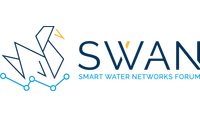

- Home
- Companies
- SWAN Forum
- Articles
- How COVID-19 is Affecting Water ...
How COVID-19 is Affecting Water Operations Worldwide
The swift spread of the Coronavirus disease (COVID-19) across the globe has resulted in unexpected and at times, under planned for, impacts. In some countries, the outbreak has moved businesses to halt on-site operations and urged employees to work from home. The water industry, however, is quickly adapting to the new reality and leveraging remote capabilities to continue supplying clean and safe drinking water and wastewater services to its residential, commercial, and industrial customers. For example, at Madrid-based Canal de Isabel II, the utility enabled telecommuting for 1,350 employees, including its full command centre, within only two days.

At the Smart Water Networks Forum (SWAN), we tapped into our global membership and asked four utility leaders in Italy, Spain, the United States, and the Netherlands to share how the global pandemic is affecting their smart water operations.
Continue to read below for the responses and strategic insights from:
- Bruno Pannuzzo – Drinking Water Treatment Plants Management at Metropolitana Milanese (MM)
- Andreu Fargas – Maintenance Department Chief at Consorci d`Aigües de Tarragona (CAT)
- Andrew Lee – Deputy Director of Drainage & Wastewater at Seattle Public Utilities (SPU)
- Rik Thijssen – Business Development Manager at Vitens
MM: We had to re-organise all our ordinary activities. We activated remote working for as many employees as we can and kept all those activities that can be listed as “indispensable,” such as Emergency Management and maintenance at drinking water treatment plants, to guarantee water supply and quality 24/7. Additionally, our customer service is always active both on our website and via telephone number.
CAT: The COVID-19 virus has a great impact on everyday activities. Water delivery is completely guaranteed, but the protection of employees is the main concern. We have implemented changes in working spaces, reduction of people interactions, change in work shifts, and working from home offices when possible. It is a tough time for essential services, but water must reach clients every day.
SPU: We provide drinking water to the greater King County population as well as drainage, wastewater and solid waste (garbage, recycling, and compost) services to our City. Approximately three days before the City’s emergency declaration on COVID-19 at the beginning of March, SPU implemented an Incident Command System (ICS) team to manage all planning, logistics, finances, and operations related to the crisis. SPU has been working to meet three key objectives: (1) Preserve continuity of essential water, wastewater, stormwater, and solid waste operations; (2) Protect employee and public health from COVID-19 exposure; and (3) Communicate in a timely and effective manner with our employees.
To preserve the continuity of essential functions, we immediately revisited and updated our Continuity of Operations Plan (COOP). We have also assembled a set of best practices for safety, hygiene, and social distancing, that was distributed to all managers/supervisors for implementation within their workgroups. During the first 3 weeks of our COVID-19 response, we did not experience a significant increase in the vacancy rate of our staff reporting to work. As such, we were able to maintain operations without a disruption in service. However, we made plans for different scenarios of employee vacancies, including a 25%, 50%, and 75% reduction in the available workforce.
On March 23, 2020, the Washington State Governor announced a “Stay Home, Stay Healthy” order. Pursuant to that order, we are now transitioning to our COOP, and are focusing on telework for all employees who can feasibly do so and essential operations for employees who cannot telework. We are now in our 4th week of our COVID-19 response, and some workgroups are experiencing elevated levels of vacancies – mostly due to recently implemented human resource policies that allow at-risk employees over the age of 60 to be placed on administrative leave.
Vitens: COVID-19 is having a significant impact on the daily operations at Vitens. The rehabilitation and construction activities within the distribution network that do not require direct contact with people remain unaffected, but the non-critical rehabilitation and construction activities at residential connections have been postponed for safety reasons. Additionally, almost all maintenance activities at production sites in co-operation with external contractors are postponed to avoid direct contact. All other activities between Vitens employees and customers (e.g. meter reading, collection, inspection) have stopped. Offices have been closed since March 20th but we are working from home using all digital tools since March 13th.
Vitens` production & distribution operations were already prepared to operate from “a distance,” so we can monitor the whole operation from home. We can change settings or even solve alarms when we are not on site. Of course, we have to visit the production plants for specific operations, but in these cases, our employees go there on their own. We have had no big incidents so far.
MM: Our digital solutions work on two parallel pathways: on the one hand, we have allowed almost all of the technical staff to work from home and continue doing their job in the safest way (e.g. using VPNs to connect to our services); on the other hand, all the online systems that give us information on specific operational or process parameters, are connected to a dedicated control room where the operators can check that everything is functioning correctly.
CAT: Digital solutions are helping us overcome operational changes due to COVID-19. We secured online access to all the processes, from catchment to treatment and final distribution, which has helped employees implement home offices for teleworking. Moreover, although COVID-19 is not transmitted through water, online water quality monitoring helps to show the client population that their safety is under control.
SPU: Digital solutions have enhanced our ability to implement social distancing and best hygiene/safety practices. Where digital solutions have been implemented effectively, staff can work remotely and with less person-to-person contact. Also, digital solutions have been rolled out to public-facing activities, where we have been able to decrease or close down public-facing counters/activities to avoid direct contact with the public. Digital solutions have facilitated virtual meetings with staff and the public and have also facilitated greater ease of accessing information for both our staff and the public.
Vitens: All Vitens employees can work remotely with the applications they need. Regarding our operations, the Vitens SmartGrid and enabling technologies such as SLIMM, OPIR (Aquasuite RHDHV) and the dense sensor network are operating as a real-time digital network. In the case of an emergency, we can respond immediately to our customers by making use of WhatsApp, SMS, and website applications to manage social media traffic.
MM: Regarding the COVID-19 emergency, residents do not have to take specific measures for their water use. According to the water, sanitation, hygiene, and waste management for the COVID-19 virus report published by the WHO, the virus has not been detected in drinking water supplies [..]” and “centralised water treatment methods that utilise disinfection should inactivate the COVID-19 virus. The COVID-19 virus is likely to be more sensitive to chlorine and other oxidant disinfection processes than many other viruses”. At MM, we use Sodium hypochlorite (NaClO), so our residents’ safety is guaranteed.
CAT: It is important to remember that water safety is completely guaranteed due to the different disinfection processes in the Treatment plant. Fortunately, water delivery is not impacted by this emergency, so the residents do not need to take special measures but must continue to use water responsibly during confinement.
SPU: During the COVID-19 emergency, we are encouraging residents to continue using their water as they would normally. Their water is safe to consume.
Vitens: Water utilities in the Netherlands received science-based information from both the National Institute of Health (RIVM) and KWR (Dutch Water Research Institute) that there is no significant risk of COVID-19 related to drinking water production and consumption. This information was shared to all Vitens customers including industrial users and critical locations like hospital and elderly homes that the use of tap water is safe
As demonstrated by MM, CAT, SPU, and Vitens, water utilities are at the forefront of the global pandemic and responding to emergency situations. By leveraging smart water technologies, water operators can implement data-driven responses and more effectively adapt to new challenges. Such efforts are representative of must-have smart water strategies as part of this new world order.
